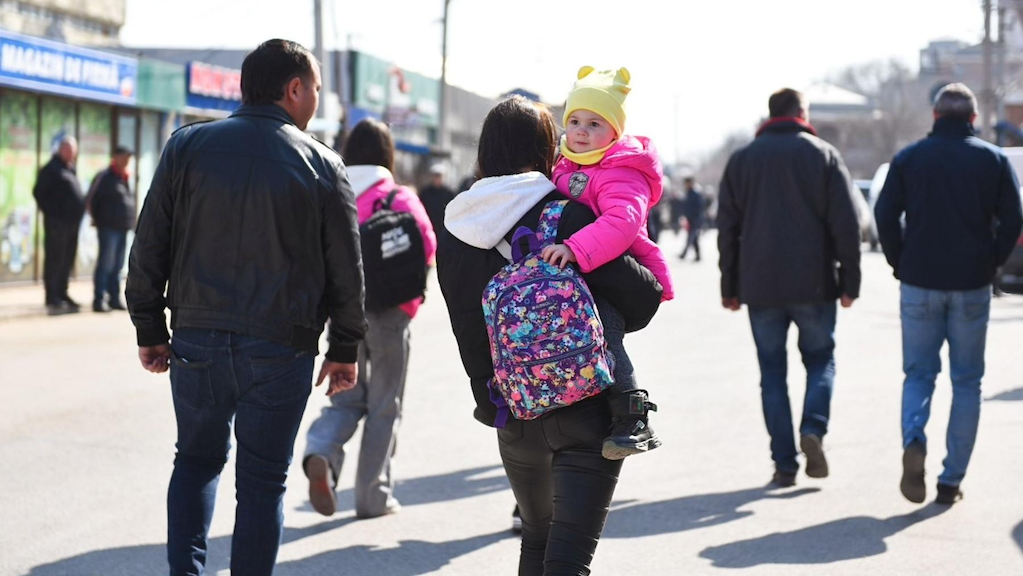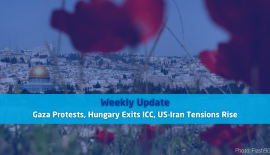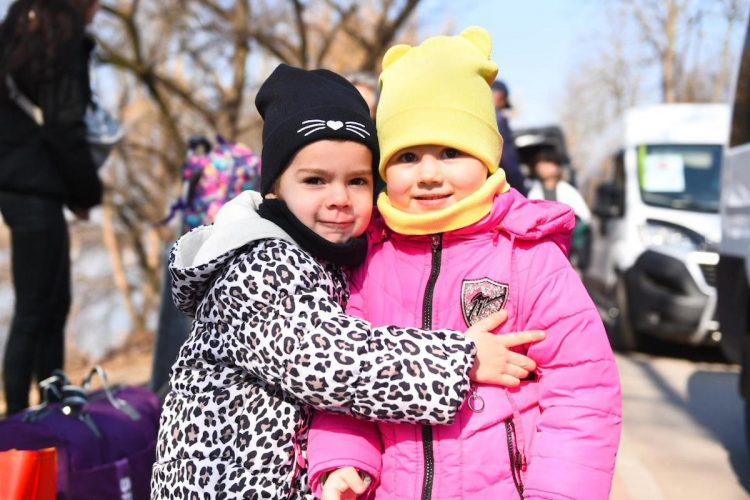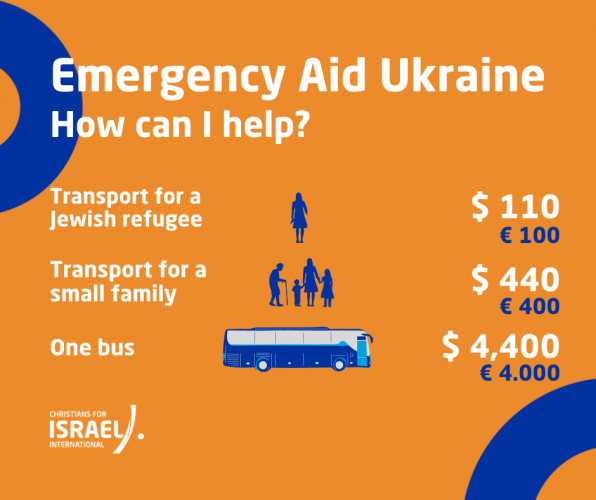Katya and her little daughter fled Mariupol: ‘I’m still in shock’
Yesterday, two names on the list of refugees we were to accompany to Kishenov, the capital of Moldova, attracted attention. Two people from Mariupol. From the city that has been so besieged for weeks, where people live in shelters, without water, electricity, heating and food. Without a reasonable chance to go to another safe place. What is their story?
It turns out to be about a young mother (29 years old) with her little daughter. On the way to Kishenov on the bus, I ask for her story. Katya is busy with her mobile phone, her little daughter Sofia is sleeping. She tells me that she left Mariupol on 19 March, six days ago now. She lived close to the center. “Since 2 March there was nothing. No water, no electricity, nothing. We melted snow to heat water. Since then, we were hiding in a shelter at the bottom of our apartment building. My husband, our little daughter – she is two years and four months – and me. In the past few weeks, our building has been bombed four times, fire broke out twice. And each time more people came to the shelter, from places that are no longer there. About 150 people were there in total at the end, including 22 children. I went occasionally, when it was a little quieter outside, to look for something to eat, my little daughter didn’t go outside for two weeks, she just stayed in the shelter.”
Katy is fairly calm when she shares her story. She does, however, have a tremendously husky voice. I can hear the emotion. I ask her how she managed to get out of Mariupol, that surrounded city. “There was a small zone between the Russians from both sides. A corridor, a chance to get away. Ukrainian soldiers helped us; we drove full throttle at 140 kilometers per hour out of the city.” Anyone who knows the roads in Ukraine even a little understands what a daring and insane action that was. The roads are a cheesecake of holes, especially now that they’re all broken up in the Mariupol area.
Fleeing Mariupol
Gradually Jews are fleeing from Mariupol, with the help of Rabbi Mendel and Christians for Israel. A route has been found. Jewish refugees then arrive at one of our shelters in western Ukraine, where we help them on their way to Israel.
Why did you decide to take that dangerous trip? “It was even more dangerous to stay. We understood that. So, we had a plan. To leave with six cars. But because the cars hadn’t driven for a while, our car and another one wouldn’t start. Three cars had already left. One car suddenly went in another direction. When our car and the other one finally started, we went. We didn’t think anymore, we drove as hard as we could.”
How do you feel now? Relieved? “I’m still in shock. I can’t really feel right now and look back on what happened. I don’t know how my mother-in-law is doing. We haven’t been able to reach her since early March. My grandfather passed away – due to old age – but still, I miss him.” Katya falls silent for a moment. I can see that her thoughts are elsewhere, and she is still checking her phone. She hopes for good news. There are still so many people she knows ín Mariupol. Then she continues to tell. “We, my husband, daughter and I, were supposed to go to Israel on 24 February, making Aliyah. But my husband’s PCR-test was positive, and so the trip was postponed. And then the war broke out…”
In Israel, her mother and brother are waiting for Katya and her daughter. But even though her husband was able to flee Mariupol, he too must stay behind in Ukraine. And then this brave woman cries anyway. She tries to hold back the tears, but she can’t. And I cry along with her.
Jewish refugees are brought from our shelter in Ukraine to Moldova. Buses then bring them to airports in either Moldova or Romania. From there, they are brought to Israel. The expense of such a bus trip is € 4000 or $4400. This is about € 100 or $110 per person. Would you like to assist one or more Jewish refugees with their evacuation and emigration to Israel? Or do you want to sponsor a whole bus? Please support our emergency campaign. Your support is of vital importance. Thank you in advance!







